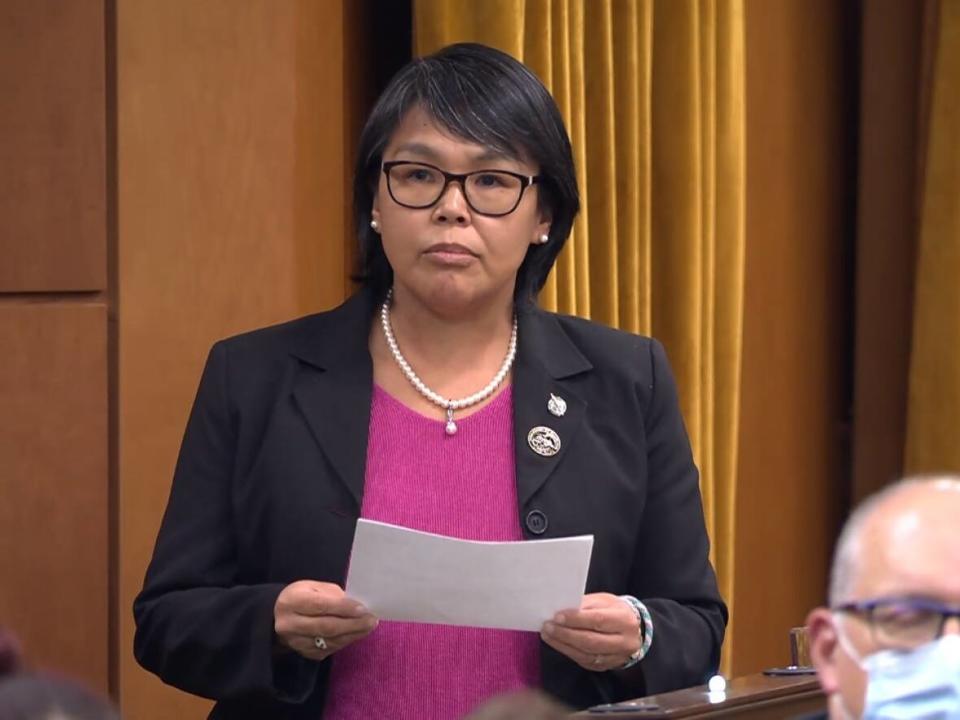Nunavut MP calls for Indigenous languages on federal election ballots

Nunavut NDP MP Lori Idlout has tabled a bill in the House of Commons to add Indigenous languages, including Inuktitut, to federal election ballots.
Speaking with Qulliq host Cindy Alorut, Idlout said she thinks her private member's bill would "be a good way for Canada to show its commitment to reconciliation."
The bill, tabled June 30, would amend the Canada Elections Act to allow a ballot to be printed in an Indigenous language "using the appropriate writing systems for that language, including syllabics if applicable," if an elector requests one or if an electoral district is on Indigenous land.
In the last federal election, 34 per cent of Nunavut's 21,332 eligible voters came to the polls, according to data from Elections Canada. In comparison, the national turnout for the last federal election was 62 per cent.
Idlout said she isn't sure if her proposed bill would make much difference in voter turnout, but she does know that many people in Nunavut don't read or write in English or French.
"It would be great to have Inuit that read only Inuktitut, be able to read on their own which person to vote for."
Idlout said "it's always a pleasure" to be able to speak Inuktitut in Parliament and "have my language translated into English."

The bill echoes similar calls from residents during past elections. In 2019, one Iqaluit resident formally complained to Elections Canada and Nunavut's language commissioner. At the time, a spokesperson for Elections Canada said changes would need to be made to the Canada Elections Act in order for sillabics to be included on future ballots.
To come into effect, a private member's bill must pass first, second and third readings in the House of Commons and be accepted by the Senate. Debate on the bill happens at second reading, but as a new member in the party, Idlout said her bill is low on the list and she's not sure if hers will make it to the debate stage.
"But I think the point of me tabling it was to create more awareness that promoting and revitalizing Indigenous languages is what we need to do," she said. "Even if it doesn't get passed, at least I've made sure that the conversation keeps going in the House of Commons."
Idlout said there are Indigenous languages spoken by only hundreds of people and that the nation should "work to protect, and encourage and revitalize Indigenous languages."
Despite her uncertainty of how far her private member's bill will go, Idlout said there are lots of ways the country can work to preserve Indigenous languages and culture,
"I'm just hoping that by keeping the conversation going, we'll find other ways to do better for First Nations native languages," she said.

 Yahoo Movies
Yahoo Movies 